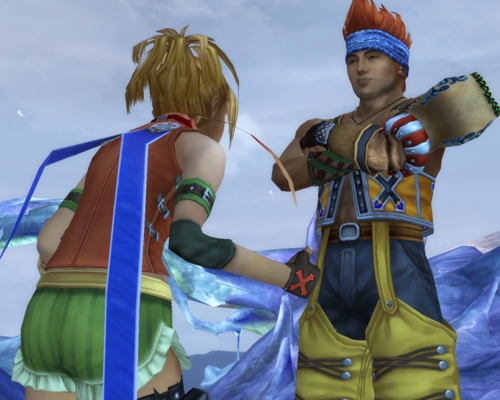A few decades ago the masses believed video games were a waste of time for lackadaisical youths to pacify themselves while ignoring their responsibilities as both kids and young adults. As more and more people started understanding the benefits of gaming so too did the perception of what a video game is and, most importantly, the benefits gaming can bestow on a person’s life changed.
Hi, my name is James Bullock and I am a gamer who has spent the better part of his existence testing the laws of physics, exploring the vastness of a world ruined, and been a champion inside various arenas courtesy of digitized worlds both driven by reality and created through pure unbelievable ingenuity unlike anything seen by human eyes. And as a gamer I’ve discovered something else video games provide: life lessons. Today I examine a game that showed how one’s beliefs could create terrible moments of dissension, “Final Fantasy X”.
Don’t Let Your Beliefs Blind You
For many long-time “Final Fantasy” fans, “Final Fantasy X” represents the last great version of everything right about the franchise featuring an incredible battle system, beautiful music, and a story & characters that will leave fans divided. One of the biggest reasons “Final Fantasy X” definitely left a lasting mark on the gaming world after it was released and in regards to the entire “Final Fantasy” franchise was its main cast featuring a highly emotional sports star, a spunky thief who can craft almost any explosive device on the fly, and one of the baddest senpais imaginable. Early in the game, lead protagonist Tidus is transported to a time unimaginable before being confronted by a very friendly Besaid islander known simply as Wakka (no flame needed).
It doesn’t take long before Tidus and Wakka hit it off as they travel throughout Besaid, beat up rabid wolves & gigantic bugs, and the latter introducing his amnesia-riddled friend to the religious order that runs throughout everything the world has to offer including politics. The religion known as Yevon is presented in a way generally associated with any mainstream organized religious institution with Wakka falling deep into the spectrum of being a fundamentalist. Wakka spends a majority of the game not only explain how his belief in Yu Yevon permeates everything he does, but also how terrible people like the Al Bhed are for embracing machinery (or “machina”) – a forbidden practice in the Yevon religion. Wakka becomes nothing short of a bigot when the aforementioned thief Rikku joins the playable team and reveals herself as Al Bhed. After several uncomfortable hours of seeing someone berate another person for believing in something that doesn’t line up with the attacker’s belief system, Wakka discovers his own religious leaders are liars & users of machinery as well; crippling his faith in these supposed godly people while understanding the error of his ways in condemning Rikku & her people for simply trying to survive through means once disgraced by Wakka.
While it’s fantastic to have a beliefs and/or a belief system, to becoming blinded by what you believe in your heart is right isn’t right at all. For a person to grow they must accept that everything they believe is possibly flawed; something that can evolve or even be discarded if it doesn’t line up with the betterment of an individual or group of people. Most importantly, no one should judge others due to their own rigid set of standards or beliefs as it not only disrespects people who may not understand your way of thinking, but also creates barriers that can ruin potential growth both personal and societal.
Have you learned any major life lessons from playing the “Final Fantasy X” or any video game for that matter? Leave them in the comments below and, as always, thanks for reading.


